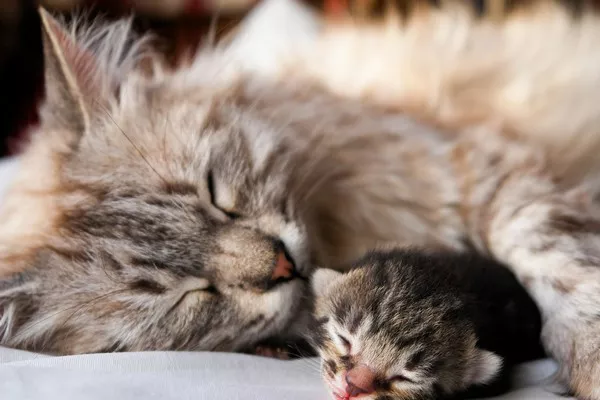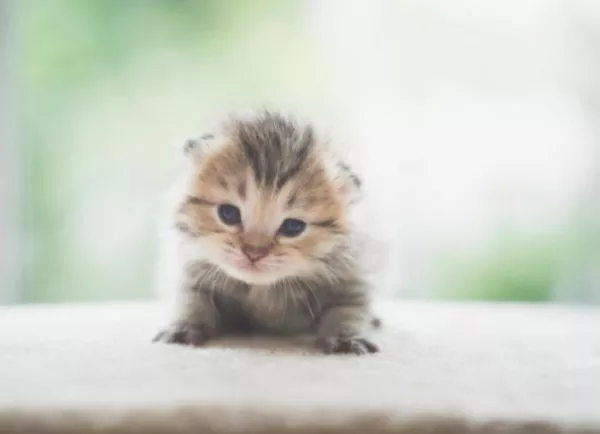When it comes to the well-being of your feline companion, understanding the appropriate weight for your Chausie cat is crucial. The Chausie cat, a captivating breed known for its unique appearance and playful demeanor, requires careful attention to its weight to ensure a long and healthy life. In this article, we will delve into the factors influencing the weight of Chausie cats and provide guidelines on how to maintain their optimal weight.
The Distinctive Chausie Cat:
Before delving into weight considerations, it’s important to appreciate the distinct characteristics of the Chausie cat. Originating from the jungle cat (Felis chaus), these hybrids boast a striking resemblance to their wild ancestors. With their large, athletic build, tufted ears, and distinctive coat patterns, Chausie cats are a breed that stands out. Understanding their unique traits is vital in determining an ideal weight range.
Factors Influencing Chausie Cat Weight:
Several factors contribute to the weight of a Chausie cat, and it’s essential for cat owners to be aware of them. Genetics play a significant role, as the breed’s lineage can influence its predisposition to certain weight ranges. Additionally, diet, exercise, age, and overall health are critical factors that can impact a Chausie cat’s weight. By considering these factors, cat owners can develop a holistic approach to weight management for their feline companions.
Determining the Ideal Weight:
To ascertain the ideal weight for your Chausie cat, consulting with a veterinarian is paramount. Vets can provide personalized recommendations based on the cat’s age, activity level, and health status. Generally, adult Chausie cats typically weigh between 15 to 20 pounds, with males often being larger than females. However, variations within this range are common, and individualized assessments are necessary to establish a healthy weight target.
Importance of Regular Vet Check-ups:
Regular veterinary check-ups are crucial for monitoring the weight and overall health of Chausie cats. These visits allow professionals to detect any potential issues early on and provide tailored advice on nutrition and exercise. A proactive approach to healthcare ensures that your Chausie cat maintains a weight that supports its well-being and longevity.
Balanced Nutrition for Chausie Cats:
Maintaining a healthy weight in Chausie cats begins with a well-balanced diet. High-quality cat food, appropriate for their age and activity level, is essential. It’s advisable to consult with a veterinarian to determine the right type and amount of food to meet the specific needs of your Chausie cat. Avoiding excessive treats and monitoring portion sizes contribute significantly to weight management.
Exercise Requirements for Chausie Cats:
Chausie cats are known for their high energy levels and playful nature. Regular exercise is vital to prevent obesity and promote overall health. Interactive toys, climbing structures, and dedicated playtime can help Chausie cats burn calories and maintain a healthy weight. Engaging in interactive activities also fulfills their mental stimulation needs, contributing to a well-rounded approach to feline care.
Weight-Related Health Concerns:
Maintaining an appropriate weight in Chausie cats is not only about aesthetics but also about preventing potential health issues. Obesity in cats can lead to various health problems, including diabetes, arthritis, and cardiovascular issues. By proactively managing their weight, cat owners can significantly reduce the risk of these complications and ensure a higher quality of life for their Chausie companions.
Monitoring Weight Changes:
Cat owners should be vigilant in monitoring any significant changes in their Chausie cat’s weight. Sudden weight gain or loss could be indicative of underlying health issues and should prompt a visit to the veterinarian. Regularly weighing your cat at home and keeping track of trends can assist in the early detection of potential problems, enabling prompt intervention and treatment.
Tailoring the Approach to Individual Cats:
It’s crucial to recognize that each Chausie cat is unique, and there is no one-size-fits-all approach to weight management. Some cats may naturally have a leaner build, while others may be more robust. By observing your cat’s behavior, consulting with a veterinarian, and adapting your approach based on their individual needs, you can tailor a plan that ensures your Chausie cat maintains a healthy weight throughout its life.
Conclusion:
In conclusion, understanding and managing the weight of your Chausie cat is a fundamental aspect of responsible pet ownership. By considering factors such as genetics, nutrition, exercise, and regular veterinary care, cat owners can play an active role in maintaining their Chausie cat’s optimal weight. A holistic approach that combines proper nutrition, regular exercise, and attentive healthcare will contribute to a happy, healthy life for your beloved Chausie companion.
Related Topics:
Unveiling the Enigmatic Chausie Cat: Pricing, Traits, and Considerations
Unraveling the Chausie Cat: A Fascinating Feline Breed
How about an African lion cat?
























